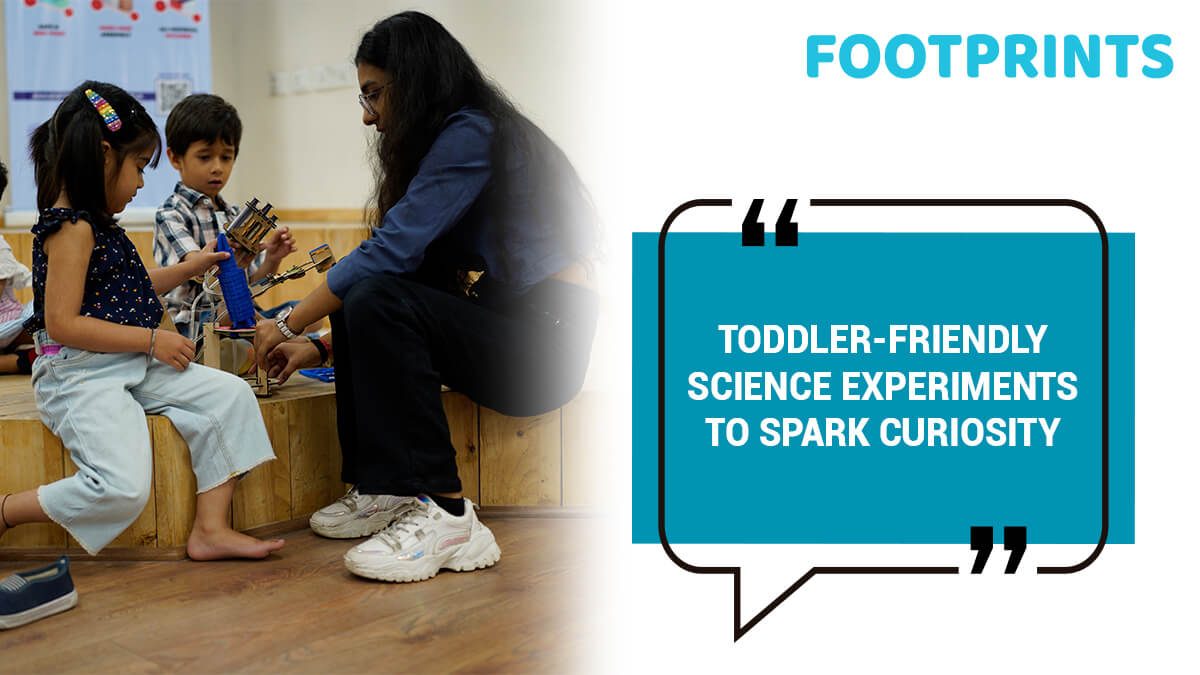
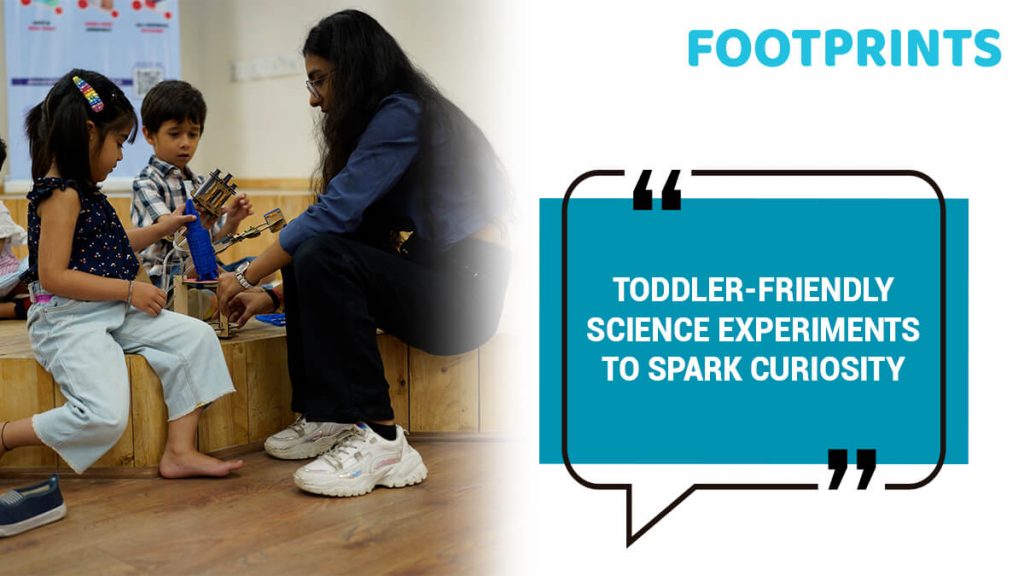
If there is one thing you can do for your little learner, it sure needs to be to spark curiosity in him to make him a lifelong learner. This is the exact reason why science experiments for children, whether they are preschoolers or in kindergarten, are key. They add to the child’s knowledge and fuel his or her curiosity to know more.
At Footprints Play School, we believe that children learn the most by doing. Hence, interesting science experiments and activities that are age-appropriate are a part of our everyday pedagogy. Truly, it’s never too early to learn!
Science Experiments for Preschoolers
Go ahead and foster your love for science with these fun activities. A word of caution here-be prepared to answer a plethora of questions after these activities, that may also test your knowledge & patience!
1. Density
A fun way to introduce the concept of density is simply to take a little bit of cooking oil in a glass. Next, add some food coloring to it. The child will be able to see that the oil floats on top while the food coloring (which is a food color added to water) will remain at the bottom. What better way to tell the child that this is because the oil is lighter or even that its density is less? Be prepared to answer many questions on what will happen when several other components are mixed! In fact, fill up a container with water and lay out a variety of objects-think stones, leaves, rocks, sponges, and more. Now ask the child whether each of these will sink or float before actually demonstrating it.
2. Invisible Ink
Now this activity will have your child in seventh heaven as he will envisage himself as a cool detective! All you need to do is to squeeze some lemon juice into a bowl and add some water to it. Now give your child a paintbrush and paper and let him draw something with the lemon juice. Sure enough, nothing will be visible. Now is the time for some science magic. Have him place the same paper near a lightbulb and see his painting appear. Sure enough, the child will share this invisible ink experiment with his friends. While you may not be able to explain the whole concept of oxidation to a young child, the phenomenon will stay in his memory!
3. Slime
Your preschooler may have asked you to buy slime many times. This one time, though, he will be overjoyed to be able to make slime himself. All you need to do is to take a bottle of glue and add to it half a teaspoon of baking soda and one and a half teaspoon of contact lens solution. Add some warm water to the mixture & there you go, the slime is ready. Flattening, rolling it, stretching it- there is a lot the child can do to have oodles of fun, as also to develop his motor skills in the process.
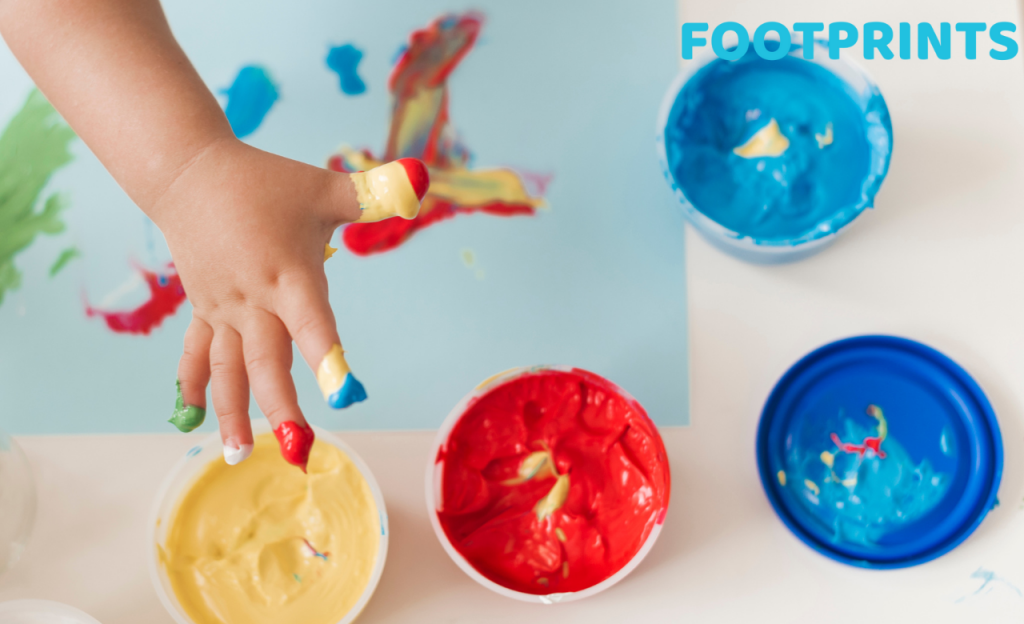
4. Making Music
This science experiment for children is sure to add to a lot of fun. Especially if your preschooler is musically inclined, this is one experiment he will love. All you need to do is to take some glasses & add different levels of water to them. Next, offer your child a spoon and let him tap on the glasses. It will be a lot of fun to hear that different glasses with varying water levels make different sounds. This will be a good time to have some age-appropriate conversation on the concept of sound waves, the pitch of sound, and more.
5. Volcanoes
If you have been talking to your child about volcanoes, this science activity for preschoolers simply has to make it to your list. Go ahead and take some baking soda & vinegar. Mix them in equal amounts and witness a chemical reaction that looks like a volcanic eruption. With this hands-on experiment, the child is likely to remember the concept of volcanic eruptions far better than when it is only read out of a book.
6. Life Cycle
While in the park, if you spot a butterfly, it will be a good time to introduce the child to the process of transformation of a butterfly from a caterpillar. There are a number of butterfly kits that help the child witness the life cycle. You could also read to them about butterflies and the entire transformation process. Should you live in a city that is home to a butterfly garden that also needs to be on your to-visit list?
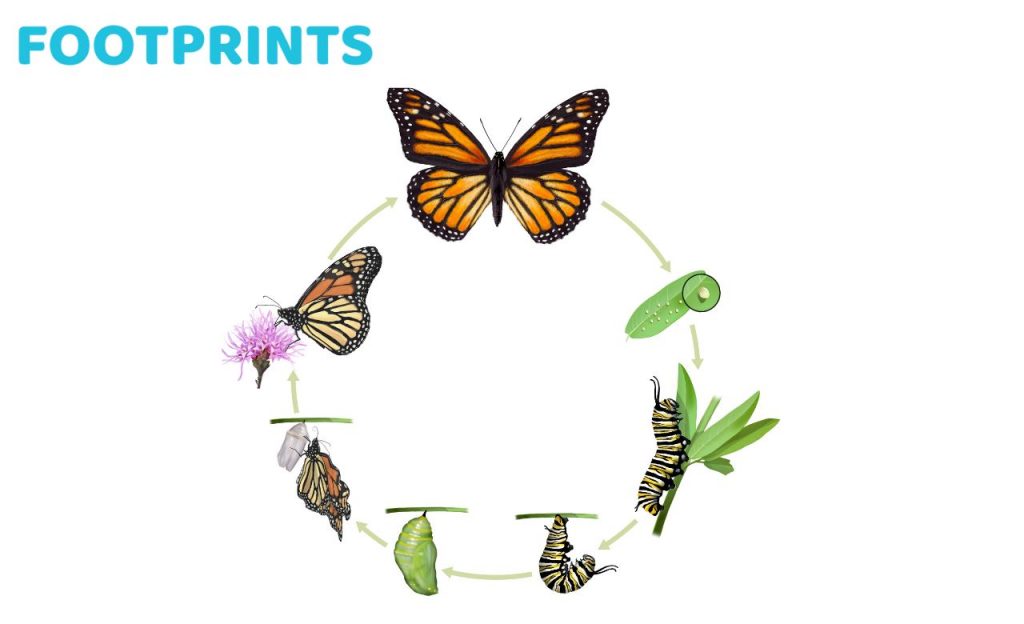
7. Star Gazing
Odds are that your child is extremely interested in outer space. The answer to what is the best experiment for children interested in outer space is indeed stargazing! If you have a telescope, there is nothing better than watching the different stars & constellations. Alternatively, you could simply look up at the night sky together and notice the phases of the moon. If you are lucky, you may notice a shooting star! Besides learning about outer space, the kind of bonding such sessions will offer, will also be unparalleled.
8. Rainbow
Here is a simple activity that will offer you the opportunity to discuss several scientific concepts. Simply take a prism and set it on a sunny window, and let the child enjoy a rainbow. This will be your opportunity to talk about light, the colors that comprise white light, and more. Get the child to draw a rainbow with its seven vibrant colors & add to the fun.
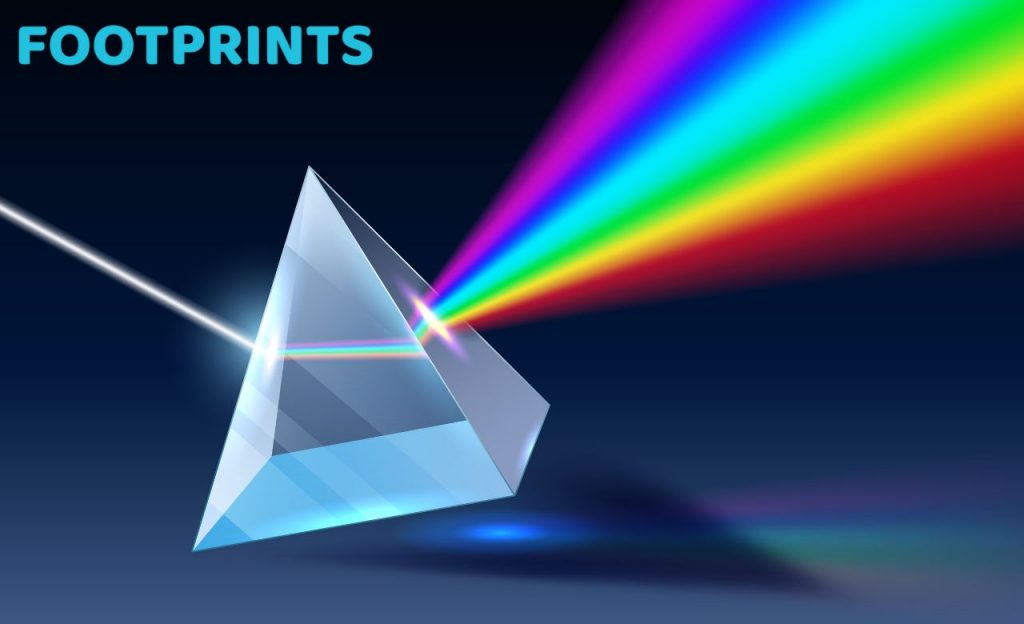
To Sum Up
There are enough & more science experiments and activities for the classroom as well as activities that you can conveniently perform at home that will ensure that your preschooler has lots of fun while learning important concepts. These hands-on activities will fuel his love for science – before you know it, he will be regaling you with many new learnings & concepts! Here’s to raising learners for life!

Purvesh is a multidimensional leader at Footprints Childcare. As a TED speaker and IIT-Delhi alumnus, his passion for education is fueled by his experiences as a certified life coach and parent. He goes beyond traditional parent engagement activities, creating meaningful connections through insightful parenting workshops and open communication channels. Purvesh’s commitment to empowering parents, teachers, and students is the foundation of everything we do at Footprints. What motivates Purvesh? As a parent himself, the challenges his son faces in the educational system are the driving force for him.

